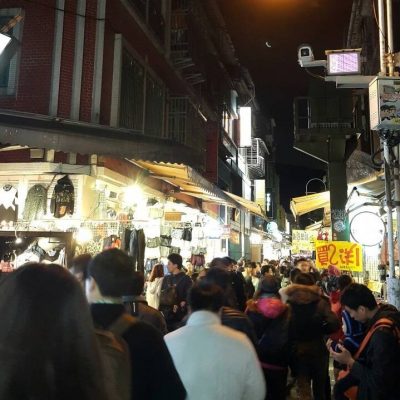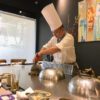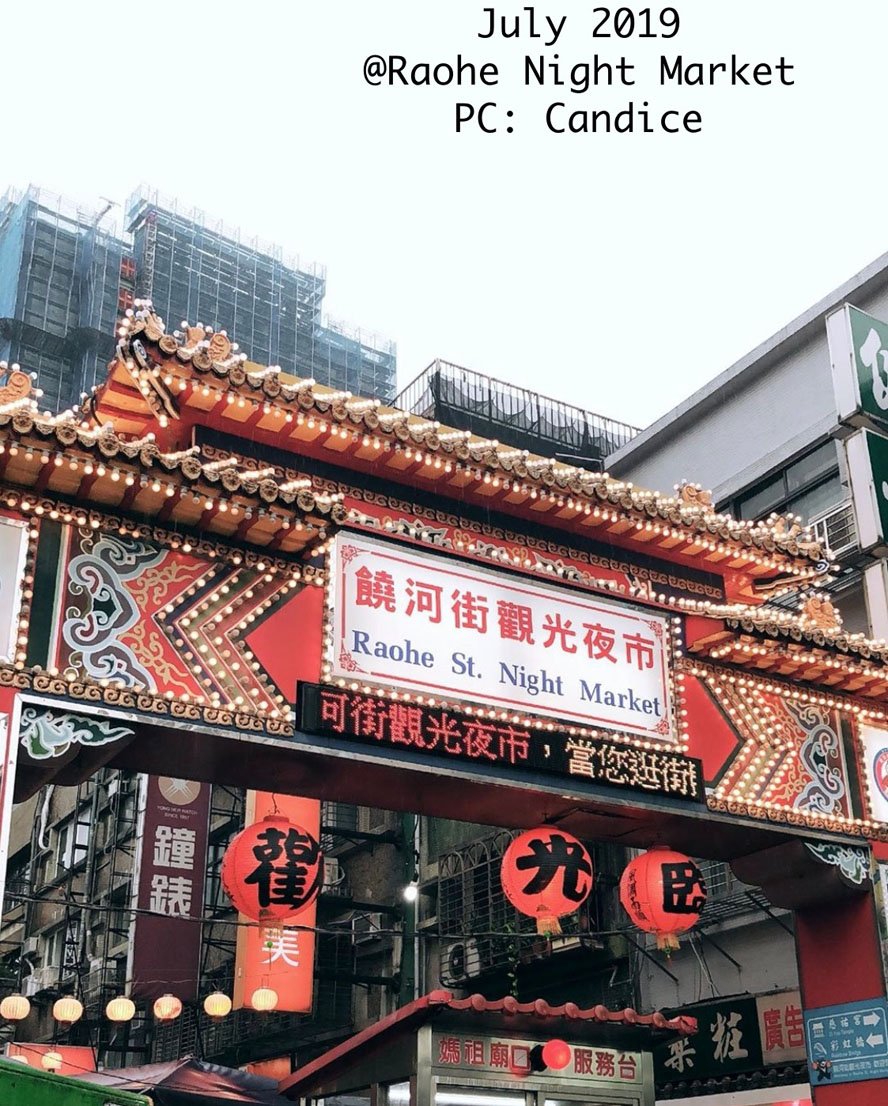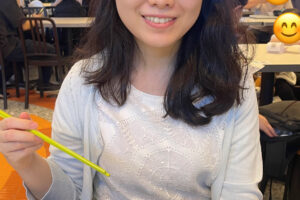The Culture of Taiwanese Night Market

YOUR KEY TO SUCCESS
At Corpus, we believe bespoke cross-cultural learning is key.
Corpus has developed a fresh, innovative yet internationally renowned teaching methodology, delivering a unique, practical and fun educational experience.
Free subscription to access the complete content and a selection of lessons.
Click below to start learning Mandarin!
台湾的夜市文化
Tái wān de yè shì wén huà

夜市,可以说是台湾最具有代表性的文化之一。人们常说「没逛过台湾的夜市,不算到台湾旅游」,也可以在一些台湾的歌曲中听到歌词描述着逛夜市的情景,它就是台湾人生活的一部分。
Yè shì, kě yǐ shuō shì tái wān zuì jù yǒu dài biǎo xìng de wén huà zhī yī. Rén men cháng shuō `méi guàng guò tái wān de yè shì, bù suàn dào tái wān lǚ yóu’, yě kě yǐ zài yī xiē tái wān de gē qǔ zhōng tīng dào gē cí miáo shù zhe guàng yè shì de qíng jǐng, tā jiù shì tái wān rén shēng huó de yī bù fèn.

夜市是一群摊贩晚上会固定聚在一个定点贩售饮食、杂货、游戏等等的地方,最吸引客人的点在于有吃有逛也有玩,应有尽有,而且不用像到西餐厅用餐一样需要穿戴整齐,是一个相当休闲放松的地方。
Yè shì shì yī qún tān fàn wǎn shàng huì gù dìng jù zài yī gè dìng diǎn fàn shòu yǐn shí, zá huò, yóu xì děng děng de dì fāng, zuì xī yǐn kè rén de diǎn zài yú yǒu chī yǒu guàng yě yǒu wán, yīng yǒu jìn yǒu, ér qiě bù yòng xiàng dào xī cān tīng yòng cān yī yàng xū yào chuān dài zhěng qí, shì yī gè xiāng dāng xiū xián fàng sōng de dì fāng.

夜市小吃通常是人们到夜市主要的目的,因为在这里可以找到各式各样的美食,价格又实惠。目前台湾从北到南大约有300多个夜市,每个夜市都有它独特的小吃,透过这样的方式让游客们可以更了解地方的特色与文化。
Yè shì xiǎo chī tōng cháng shì rén men dào yè shì zhǔ yào de mù dì, yīn wèi zài zhè lǐ kě yǐ zhǎo dào gè shì gè yàng de měi shí, jià gé yòu shí huì. Mù qián tái wān cóng běi dào nán dà yuē yǒu 300 duō gè yè shì, měi gè yè shì dōu yǒu tā dú tè de xiǎo chī, tòu guò zhè yàng de fāng shì ràng yóu kè men kě yǐ gèng liǎo jiě dì fāng de tè sè yǔ wén huà.

每当被外国人问为什么喜欢台湾的夜市,有时候真的很难有一个确切的回答,因为有记忆以来,它就是我生活中不可或缺的一部分,以前陪伴我度过在台湾的学生时期,现在回台湾也是必去的一个地方,或是因为它有浓浓的台湾味,有一份属于家的感觉。
Měi dāng bèi wài guó rén wèn wèi shé me xǐ huān tái wān de yè shì, yǒu shí hòu zhēn de hěn nán yǒu yī gè què qiè de huí dá, yīn wèi yǒu jì yì yǐlái, tā jiù shì wǒ shēng huó zhōng bù kě huò quē de yī bù fèn, yǐ qián péi bàn wǒ dù guò zài tái wān de xué shēng shí qí, xiàn zài huí tái wān yě shì bì qù de yī gè dì fāng, huò shì yīn wèi tā yǒu nóng nóng de tái wān wèi, yǒu yī fèn shǔ yú jiā de gǎn jué.
作者介绍
Candice,在台湾出生、长大,16岁前往英国寄宿学校就读,目前就读英国雷丁大学商学院。
台灣的夜市文化
Tái wān de yè shì wén huà

夜市,可以說是台灣最具有代表性的文化之一。人們常說「沒逛過台灣的夜市,不算到台灣旅遊」,也可以在一些台灣的歌曲中聽到歌詞描述著逛夜市的情景,它就是台灣人生活的一部分。
Yè shì, kě yǐ shuō shì tái wān zuì jù yǒu dài biǎo xìng de wén huà zhī yī. Rén men cháng shuō `méi guàng guò tái wān de yè shì, bù suàn dào tái wān lǚ yóu’, yě kě yǐ zài yī xiē tái wān de gē qǔ zhōng tīng dào gē cí miáo shù zhe guàng yè shì de qíng jǐng, tā jiù shì tái wān rén shēng huó de yī bù fèn.

夜市是一群攤販晚上會固定聚在一個定點販售飲食、雜貨、遊戲等等的地方,最吸引客人的點在於有吃有逛也有玩,應有盡有,而且不用像到西餐廳用餐一樣需要穿戴整齊,是一個相當休閒放鬆的地方。
Yè shì shì yī qún tān fàn wǎn shàng huì gù dìng jù zài yī gè dìng diǎn fàn shòu yǐn shí, zá huò, yóu xì děng děng de dì fāng, zuì xī yǐn kè rén de diǎn zài yú yǒu chī yǒu guàng yě yǒu wán, yīng yǒu jìn yǒu, ér qiě bù yòng xiàng dào xī cān tīng yòng cān yī yàng xū yào chuān dài zhěng qí, shì yī gè xiāng dāng xiū xián fàng sōng de dì fāng.

夜市小吃通常是人們到夜市主要的目的,因為在這裡可以找到各式各樣的美食,價格又實惠。目前台灣從北到南大約有300多個夜市,每個夜市都有它獨特的小吃,透過這樣的方式讓遊客們可以更了解地方的特色與文化。
Yè shì xiǎo chī tōng cháng shì rén men dào yè shì zhǔ yào de mù dì, yīn wèi zài zhè lǐ kě yǐ zhǎo dào gè shì gè yàng de měi shí, jià gé yòu shí huì. Mù qián tái wān cóng běi dào nán dà yuē yǒu 300 duō gè yè shì, měi gè yè shì dōu yǒu tā dú tè de xiǎo chī, tòu guò zhè yàng de fāng shì ràng yóu kè men kě yǐ gèng liǎo jiě dì fāng de tè sè yǔ wén huà.

每當被外國人問為什麼喜歡台灣的夜市,有時候真的很難有一個確切的回答,因為有記憶以來,它就是我生活中不可或缺的一部分,以前陪伴我度過在台灣的學生時期,現在回台灣也是必去的一個地方,或是因為它有濃濃的台灣味,有一份屬於家的感覺。
Měi dāng bèi wài guó rén wèn wèi shé me xǐ huān tái wān de yè shì, yǒu shí hòu zhēn de hěn nán yǒu yī gè què qiè de huí dá, yīn wèi yǒu jì yì yǐlái, tā jiù shì wǒ shēng huó zhōng bù kě huò quē de yī bù fèn, yǐ qián péi bàn wǒ dù guò zài tái wān de xué shēng shí qí, xiàn zài huí tái wān yě shì bì qù de yī gè dì fāng, huò shì yīn wèi tā yǒu nóng nóng de tái wān wèi, yǒu yī fèn shǔ yú jiā de gǎn jué.
作者介紹
Candice,在台灣出生、長大,16歲前往英國寄宿學校就讀,目前就讀英國雷丁大學商學院。
The Culture of Taiwanese Night Market

The night market is said to be one of the most representative cultures in Taiwan. People often say that “If you’ve never been to Taiwanese night markets, then you haven’t been to Taiwan.” There are also lyrics that describe the scene of visiting the night market in some Taiwanese songs. In other words, it is part of the daily life of Taiwanese people.

The night market is a fixed location where a group of vendors sell food, sundries and games. The best thing about it is that you can eat, shop and play games in the same place. Also, unlike in a Western restaurant, formal wear is not necessary here. You can relax and be your usual self.

In addition, night markets are known for their wide variety of affordable snacks, which is the main reason why people go there. There are currently more than 300 night markets in Taiwan, and each has its own unique snacks, which is also a good way for tourists to get to know the local characteristics and cultures better.

When a foreigner asks me why I like the night markets in Taiwan, sometimes it is hard for me to give an exact answer. Ever since I can remember, it has been a huge part of my life. I often went there back when I studied in Taiwan, and even now, it is still a must visit when I go back. For me, it is a place with Taiwanese style and reminds me of home.
About the Author
Candice was born and raised in Taiwan. She went to boarding school in the UK when she was 16 years old. Currently, she studies at Henley Business School of the University of Reading.




